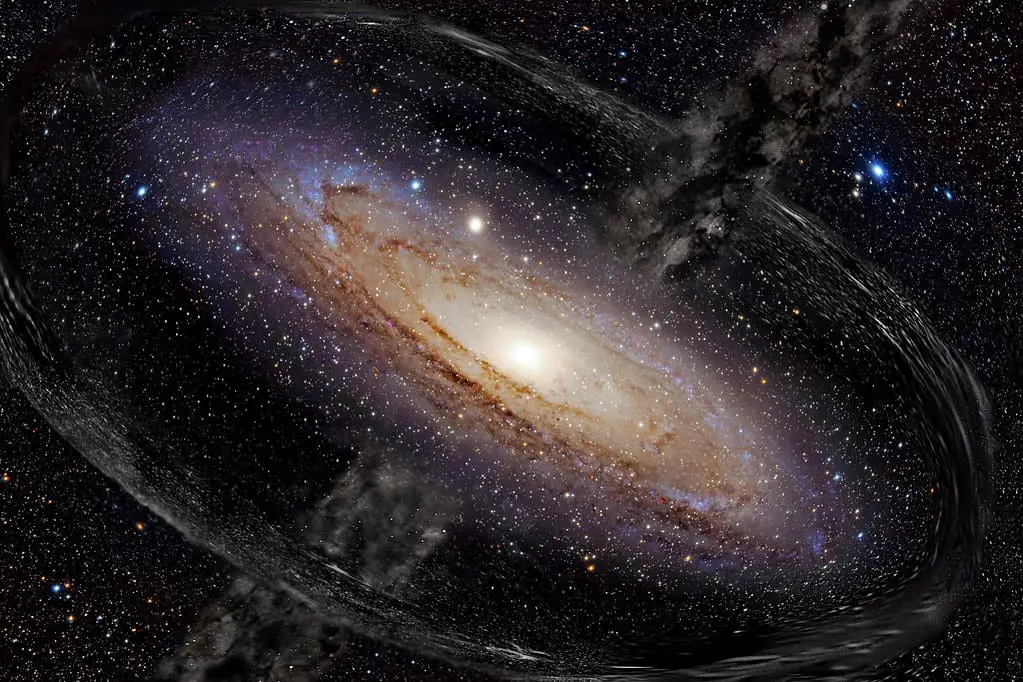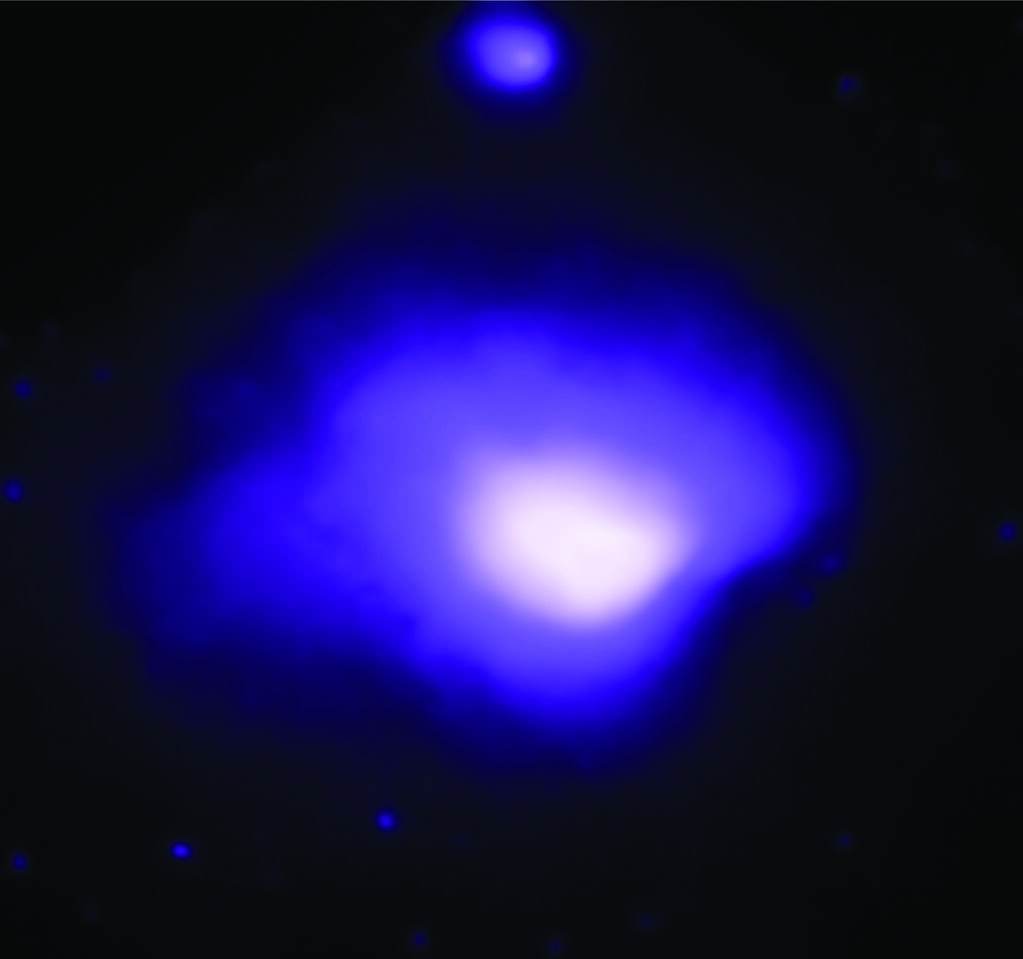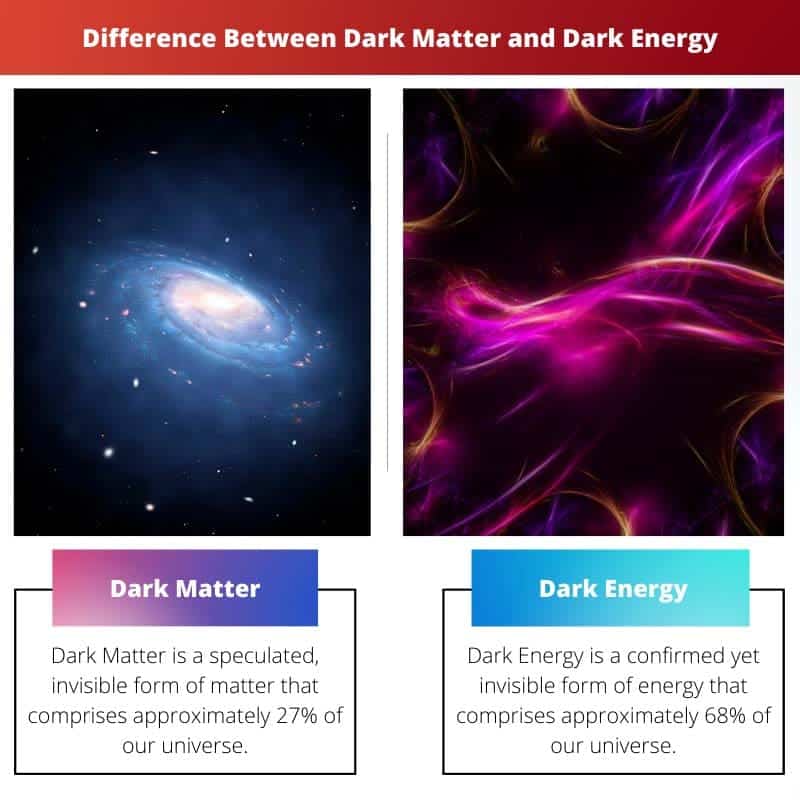The universe consists of mysterious and powerful forms of energies and matters that are yet to be fully explained scientifically.
Even though we can’t approach this phenomenon physically, it is speculated that the universe is made up of dark matter and dark energy.
Key Takeaways
- Dark matter is a form of matter that doesn’t emit or absorb light, while dark energy is a mysterious force driving the universe’s accelerated expansion.
- Scientists estimate that dark matter constitutes around 27% of the universe’s mass-energy, while dark energy makes up about 68%.
- Both dark matter and dark energy are currently undetectable, and their existence is inferred through gravitational effects on visible matter and the universe’s expansion.
Dark Matter vs Dark Energy
Dark Matter refers to an invisible type of matter that is believed to make up a significant portion of the total matter in the universe. Dark Energy refers to a mysterious and unknown form of energy that seems to permeate all of space and drives the accelerating expansion of the universe.

Dark Matter is a speculated, invisible form of matter that comprises approximately 27% of our universe. Practically or theoretically, there is no clear proof of what exactly dark matter is.
The definitions may only be partially ideal based on various experiments conducted over the decades.
Dark Energy is a confirmed yet invisible form of energy that comprises approximately 68% of our universe. It is a form of anti-gravitational or repulsive force that has been the major cause of our universe’s accelerating expansion.
However, everything else about dark energy is a complete mystery.
Comparison Table
| Parameters of Comparison | Dark Matter | Dark Energy |
|---|---|---|
| Definition | It is a form of matter. | It is a form of energy. |
| Distribution | It comprises 27% of the universe. | It comprises 68% of the universe. |
| Force | It is an attractive force. | It is a repulsive force. |
| Impact | It holds the galaxies intact. | It accelerates the expansion of the universe. |
| Existence | It exists in space only. | It exists in both space and time. |
What is Dark Matter?
Dark Matter is a speculated, invisible form of matter that comprises approximately 27% of our universe. Practically or theoretically, there is no clear proof of what exactly dark matter is.
The definitions may only be partially ideal based on various experiments conducted over the decades.
In the 1930s, Fritz Zwicky, an astronomer, researched thousands of galaxies, and while he was studying some images, he made a surprising discovery.
The galaxies he studied were moving so fast that they should have distorted each other in different directions, but they didn’t. He concluded that some form of invisible dark matter held them together.
Scientifically, dark matter has never been physically detected as it simply does not absorb, reflect or emit light.
It is partially evident that dark matter provides the galaxies extra mass, which induces extra gravity. As a result, the galaxies stay intact.
Scientists are much more sure of what dark matter is not than what it is. Ruling out various scenarios and possibilities, dark matter works like an attractive force that glues our universe together.
Thus, Dark matter slows down the expansion of the universe. It interacts with gravity but is unaffected by light energy.

What is Dark Energy?
Dark Energy is a confirmed yet invisible form of energy that comprises approximately 68% of our universe. It is a form of anti-gravitational or repulsive force that has been the major cause of our universe’s accelerating expansion.
However, everything else about dark energy is a complete mystery.
In late 1998, a team of astronomers aimed to calculate the universe’s expansion rate in the form of a constant value known as the Hubble Constant.
They were studying supernovas in distant galaxies and discovered that distant galaxies were drifting away from us much faster than nearby galaxies.
They realized that the universe wasn’t expanding at a consistent rate but at an accelerating rate of pace. Hence, the concept of the Hubble Constant was contradicted.
Albert Einstein was the first to state that space is not empty and consists of some invisible force. He gave the property of space that was capable of expanding beyond reach.
Dark energy is evenly distributed throughout the universe, not only in space but also in time. Scientifically, dark energy has never been physically detected, but only its effect on the universe has been proven to exist.
It is a far more dominating force than dark matter and directly results in the universe’s expansion.

Main Differences Between Dark Matter and Dark Energy
- Dark matter is a form of invisible matter or mass, whereas dark energy is a form of energy.
- Dark matter slows down the universe’s expansion, whereas dark energy accelerates the expansion.
- Dark matter exists in space only, whereas dark energy exists in both space and time.
- When compared to dark matter, dark energy is a far more dominating force in the universe.
- Dark matter is ideal for the co-existence of galaxies and the sustainability of the universe, whereas dark energy is non-ideal.




